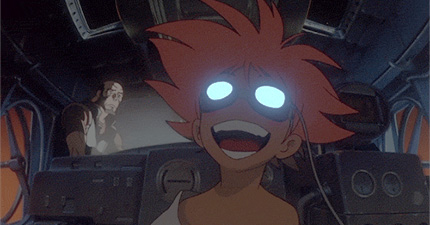This article is about public shaming—this is a separate and different phenomenon than “cancelling” though the two are often confused. “Cancelling” is AAVE, which is why I put it in quotation marks, because it’s not my language. The first time I heard about “cancelling,” a friend made it very clear to me that it was something invented by Black women to protect themselves and that neither I nor anyone who is not a Black woman should express an opinion on it. This piece of writing is not about “cancelling” but about the phenomenon of public shaming.
Public shaming is what happens when the community response of “cancelling” is co-opted by in-groups that have always relied on exclusion to define their peripheries. Public shaming happens in large and powerful institutions or in corporate digital spaces. Public shaming sometimes happens to marginalized and oppressed people when they interact with each other through an institution or a private app as a social buffer. Public shaming often replicates hierarchies that tell us who is disposable and who is not. Public shaming often disguises itself as social progress.
I used to work a lot in schools. I worked in schools where teachers didn’t have enough resources for classes of up to 30 kids and I worked in schools where parents and teachers had a ton of resources to educate the young. A lot of the teachers working now are millennials or gen x people who want to teach a younger generation how to talk about oppression with the goal of changing the world. However, the schools that teachers teach in are unequal and segregated.
What tends to happen is that very privileged elementary school kids know all the right words when talking about oppression and power. I’ve seen very privileged white eight year olds use words like “marginalization” and “intersectionality”! And there isn’t anything wrong with that—I found these eight year olds to be very compassionate and intelligent. However, not everyone is able to afford a tailored education. What happens is that diversity becomes a commodity. Schools with resources meet their quotas needed to foster a multicultural environment. What often happens is that privileged kids, called “changemakers” by their teachers, are also positioned to be the leaders of social change. Multiculturalism becomes something that benefits some people but not everyone.
As Catherine Liu writes in her book Hoarding Virtue about what she calls the “professional managerial class” or PMC: “They still believe themselves to be the heroes of history, fighting to defend innocent victims against their evil victimizers, but the working class is not a group they find worth saving, because by PMC standards, they do not behave properly: they are either disengaged politically or too angry to be civil. Liberal members of the credentialed classes love to use the word empower when they talk about “people,” but the use of that verb objectifies the recipients of their help while implying that the people have no access to power without them.”
We live in a celebrity obsessed culture. A lot of complaints around public shaming center the celebrity. I’m not interested in celebrities. I want to talk about how public shaming because I see it affect the relationships and imaginations of actual people. This isn’t one or two people. Public shaming is a clear pattern that I usually see mostly with young people who are growing up and making mistakes online where strangers can see. I’ve noticed these patterns of public shaming happens more in feminist and queer spaces thn racial justice spaces because the feminist and queer spaces I interact with tend to be more educationally privileged, though not always, than spaces that focus on racial justice. I’ve also seen it affect fandom as a play space—a lot of the more visible parts of fandom are folks with disposable income and some educational privilege.
What I have seen is that, when language about social justice is weaponized by people who have educational privilege, marginalized and oppressed young people suffer. They suffer when they get pushed out of their social groups and treated as “toxic” when they make honest mistakes or trigger the defenses of someone they care about, as most people do. They suffer when they become cynical about movements and paranoid about people. They suffer when their imaginations over who they can dream to become get stunted.
I’m talking about teens who are slutshamed in the name of feminism by fandom communities by their peers for wanting beauty validation. I’m talking about Black girls getting shat on for something called “asianfishing” just because they like anime and cosplay. I’m talking about Asian teens getting shat on for “asianfishing” because people on the internet thought they were white from their pictures! I’m talking about asian trans people getting called TERFs because they asked a question about white transwomen appropriating orientalized aesthetics. I’m talking about young people who are confused about their sexualities but don’t know all the correct words for talking about gender and sex talk about desire and get piled onto by online strangers when they talk about this confusion online. This latter example is absolutely ridiculous because we shouldn’t expect an eighteen year old to know how to talk about sex and gender because it’s something that no one knows how to do.
All my examples are things that I have actually seen happen—no bogeymen provided here. I’m talking about real instances that I have witnessed that make me take a step back and go, “Wait a minute. What the hell is happening here? Why are people being mean to each other for no reason?”
And then there are the corporations, who use DEI (diversity, equity, and inclusion) as a sort of PR. They can afford PR. They know how to portray themselves online and, when they don’t, it’s usually on purpose. All press is good press—remember? A teen who is just trying to express themselves online and share their voice on social media doesn’t always know how to deal with the gap between intention and responsibility.
I’ve seen all of these things happen in the name of social progress but this isn’t social progress. It’s the same shit that we’ve always seen—misogyny and racism and queerphobia. It’s bullying and bullying is and will always be a method of oppression. It’s just that, now, when movement work is co-opted, oppression calls itself justice or change.
We’ve seen other forms of protest get co-opted by power—from direct action to representation to satire. Power greenwashes, pinkwashes, and tokenizes. Why not call outs? Of course call outs can get co-opted. There’s an article on Forbes that tells companies how to use social media call outs as customer service up right now. It’s the staging of just another morality war to create brand alliance.
When did movement building become about brands and celebrities and ethical consumption? About what not to buy? About buying into the right thing as if there is a way to consume ethically under capitalism?
I believe that it is completely congruent and very possible to be an advocate for public community accountability, in solidarity with cancelling as self protection, while resisting public shaming. There is a clear distinction between the two. To tell the difference, you just have to really believe that the vision for social change is to protect imperfect relationships and not to describe ideologies of right or wrong. To tell the difference, you just have to come from a place of compassion and not superiority. You have to believe in relationships. There is a very real need for call outs and cancelling—it’s an important form of self protection. Public shaming, on the other hand, happens when social justice becomes a (social or otherwise) media event. Public shaming usually happens between people who don’t even know each other except through a private app or other institution.
And this is a letter to the teens because they’re coming of age in a setting where they’re supposed to apply for jobs on the same digital platforms where they also shitpost. It’s a letter of support for those young people who are in the unsettling position of being expected to not only change the systems that they have inherited but also to succeed within them:
If you are a young person who is growing up on social media and without the educational privilege of learning how to speak “correctly” about the type of change that institutions co-opt and then try to define for us, advocate for your absolutely essential right to be wrong. Advocate for your right to be wrong in a world where everything is unequal and violent. Advocate for your ability to learn compassion by healing harm. Advocate for these things because, with them and without failure, you will not be free enough to dream as big as you need to dream.
You are valuable and loveable when you are wrong. You are valuable and loveable when you hurt someone and heal. You are valuable and loveable when you don’t have all of the answers.
Advocate for yourself because, apparently, none of us are willing to do it for you. We’re all too busy trying to prove that we’re one of the good guys by writing punditry on social media about why you do not deserve to be loved until you become perfect.
For more on this topic, go to saltwater.stars’s instagram.


